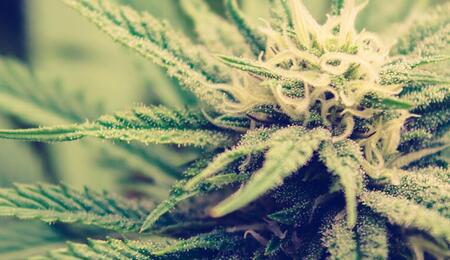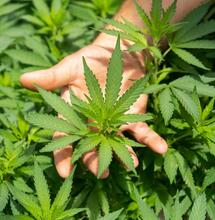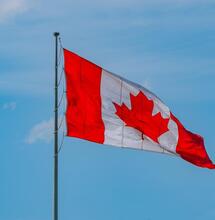A Behind the Scenes Discussion of Marijuana Legalization

Rick Steves discusses cannabis legalization
Rick Steves discusses cannabis legalization
SOURCE: www.huffingtonpost.com AUTHOR: Rick Steves With a group of respected and caring citizens, I have co-sponsored Initiative 502 in Washington State, New Approach Washington, which will legalize, tax, and regulate the sale of marijuana for adults. We worked very hard last year to gather more than 350,000 signatures. Last month, we turned them in, and last week, our state government certified that we had gathered enough good signatures. This means that (unless our legislature simply accepts the initiative outright), I-502 will be on the ballot in November of 2012. I'm working with a wonderful group of activists who -- like their counterparts did in the 1930s to end the prohibition against alcohol -- endeavor to end the US government's war on marijuana. We believe that it's not a question of if the US will stop sending pot smokers to jail. It's a matter of when. While there are many good reasons to be waging this battle, for me this is a matter of civil liberties and pragmatic harm reduction. As with the laws against booze during Prohibition, people are realizing that the laws against marijuana are causing more harm to our society than the very drug they criminalize. When alcohol was finally legalized, no one was saying, "Booze is good." Rather, they were deciding that the law was bad, and that it made more sense to tax and regulate alcohol as a recreational drug and to take the money, violence, and crime out of the equation -- to treat its abuse not as a crime, but as a health and education challenge. I believe that is what's happening now in our country with a reconsideration of laws criminalizing marijuana use. And I believe Washington State will become the first state in the country to actually legalize, tax, and regulate marijuana this November. I will be working hard between now and then to help make that happen. I am excited and proud of our work. The people on our team see this not as a "pro-drug use" crusade, but as a "smart drug law" crusade. I've been a board member of NORML for ten years, and during that time I've attended many drug policy conventions around the country. I just returned from a very good conference put on by the Drug Policy Alliance and co-hosts including the ACLU, Open Society Foundations, and the International Drug Policy Consortium. I thought you might enjoy an insight into what people discuss at such an event. So, for your interest, I've typed up some of my rough notes. I should stress that I don't necessarily agree with all these points -- I simply found them thought-provoking, and hope you might, as well. Notes from the International Drug Policy Reform ConferenceNovember, 2011, in Los Angeles
The system (as established and maintained by the US) is rigged to prevent change. Drug policies are dictated by the UN. If a country is decertified (which can happen, for example, if it legalizes marijuana), the US Congress is required to vote against them in trade policies (causing an expensive trade war). Another example: Our drug czar is required by our government to vote to keep drugs illegal. If an individual state passes a law that takes a course different then the federal law, the USA's ability to impose its drug laws on the rest of the world will be diminished. The paper tiger of UN drug treaties will then change as the US is forced to reconsider its war on marijuana Or: Rich countries in the north can ignore the US and UN. But in the south, poor countries will likely continue to follow regressive drug laws to protect relations with the USA, Japan, or Russia. They know they can lose their foreign aid and favored trade status if they buck US drug policy dictates. While the USA enforces UN treaties on the rest of the world, it can ignore them domestically because our constitution prohibits us from having to follow any international laws. "UN" is a four-letter word in DC. The UN is held just below the French in contempt. The UN was 60 nations at first. Now it's 200 nations. The USA hates the "one nation, one vote" element of the UN. We are more comfortable with World Bank and IMF (because votes are weighted and the USA can throw its weight around). UN votes are public, so consensus is extorted. With private voting, like for secretary general, many countries would oppose the USA on drugs. But it's too costly and dangerous to do so publically, especially for a poor or Third World country. So when drug policy is brought to a vote, little countries comply with the USA. When it comes to the rest of the world, we don't have a weapons shield. We have a news shield and an ideas shield. "War is God's way of teaching Americans geography." The US even wants to prohibit indigenous people from chewing cocoa leaf. While the Dutch have to keep drug laws on the books due to international conventions (i.e., US indirect threats and pressure), they have a system of just ignoring them (like Seattle does with I-75 -- letting enforcement of marijuana laws be the last priority). The Dutch justice system has the option to enforce a law only if it's considered in the national interest. Because the illegal drug trade is so profitable, there is an established elite class of big-time drug merchants in drug-producing countries throughout the world. "Narcotecture" is the name of fancy mansions of drug dealers in poor countries like Afghanistan. Current drug laws are enriching organized crime throughout the world. The UN is west-centric, with our values of individual over common good. Where we might celebrate "civil liberties," someone in Taiwan exercising what we might promote as a basic freedom can bring shame on their grandparents or community with their action. To people outside our country, we Americans live in the belly of the drug-war beast. Countries with compassionate and "harm reduction" policies like Portugal provide a beacon of hope.Portugal's "Law 30"
Portugal's "Law 30" decriminalized the consumption of all drugs in 2000. They recently had a ten-year review, and even though a conservative government has since replaced the more progressive government that established this law, the law is considered good. Even former opponents of the law agree that its benefits far outweigh its harms. "Law 30" will continue to be Portuguese law of the land. Portugal was repressed by a dictatorship until 1974. With freedom, people embraced their liberty. Activities like drug use spiked (temporarily). In 1999, a group of experts came together to find a solution to this problem. They determined that the "war on drugs" was a "war on people." With the goal of establishing a legal framework for harm reduction, in 2000 they made their law decriminalizing the consumption of all drugs. Like in the US, 1% of Portugal's population (100,000 out of 10 million) were using hard drugs. The Portuguese consider a drug addict not a criminal, but a sick person. With their ten-year review studying drug consumption trends from 2001 to 2009, they found the following: "And nothing bad happened." The big negatives some predicted did not materialize. They experienced none of the expected "drug tourism" (young backpackers didn't converge on Portugal as the new drug mecca). Statistically the number of people who've tried various drugs increased a little (possibly because it is more comfortable to admit it after the change in laws). There was no change in use rates from when drugs were illegal. Over the decade, there was a reduction in use by young people (age 15-24). Among that age group, recreational use went up in 2003 (immediately after the new law went into force) and then dropped back down in 2005. Portugal now has fewer people with HIV and more people in treatment. The police like it as they can now focus on violent crime. The burden on Portugal's prisons and criminal system is less. And the relationship between the Portuguese government and its drug-using population went from enemy to advocate. The slight increase of consumption in Portugal after this law was similar to increases in Italy and Spain during the same period; therefore, it was likely a regional trend not related to their law change.
Netherlands
Changes recently introduced in the Netherlands seem designed to add restrictions to coffeeshops: They must now be 350 meters from schools rather than 250 meters. The THC must be limited to 15%. This distinction means that, legally, there are two kinds of pot -- one harder and one softer. The Dutch make a firm distinction between hard and soft drugs. With their model, Dutch use of heroin is very low. The problem with the coffeeshop model of retailing marijuana is "the grey area" (the back side, wholesaling, which has never really been addressed and is just kind of ignored by the Dutch system). The Dutch cannot deal with the reality of wholesaling because that would break international trade agreements (put on all countries via the UN by the USA), and that would be very expensive. With pressure from outside (so foreigners don't come in and smoke), some in the Dutch government are trying to make coffeeshops become clubs only for locals rather than commercial sales points. Only locals with membership cards could enter. This is unpopular in the Netherlands because officials fear crime will go up, and cities like the status quo. On this issue, it's more progressive urban areas against the conservative rural votes in their parliament.Marijuana Laws Elsewhere
In Switzerland, it's a civil offense with a fine but no crime. The Czechs are free to grow their own. The Belgians can grow one plant per person on their own or, more efficiently, by joining cannabis clubs. Spaniards can retail seeds and gear but not actual marijuana. They can grow it in conjunction with marijuana clubs. Greece's prisons are full, and 40% of its prison population is there on drug charges. As they have no money, in the future treatment will increase, and incarceration will decrease. While you can get a fine now for smoking marijuana, trends in Greece are towards allowing home growing and personal use. For the Swedes, not taking drugs is a matter of willpower: "If you are weak and partake, your biology changes and you then get addicted." Therefore, Swedish drug policy is regressive v.v. other European nations. Most of Europe has the option to not enforce existing laws: "opportunistic" or "expediency" principle. In the USA, if the law exists, it must be enforced. (It's the same in Germany, so heroin was made legally a medicine in order to allow "café fix" maintenance centers.) Europe wants science over ideology. US: The impact on European media of California's recent Prop 19 debate was much greater than Portugal's Law 30. Europeans understand that the problem (the war on marijuana) emanates from the USA. The success of I-502 in Washington State would be huge in Europe. In Seattle, I-75 is de facto decriminalization. These are the kinds of actions that are viable within today's parameters. If I-502 passes, this very well may be the start of a big change in international laws.
S
Soft Secrets



